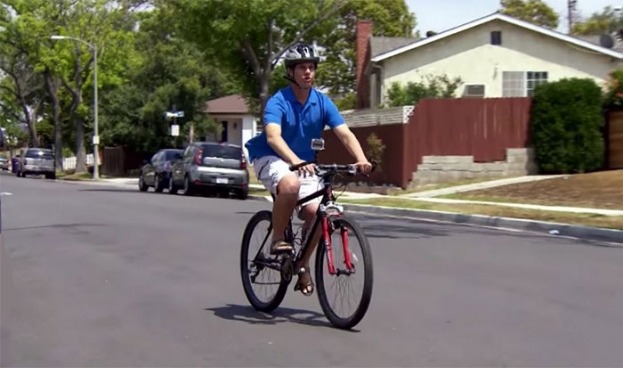I first began listening to podcasts in the fall of 2015 and a favorite soon became Invisibilia, which “explore[s] the invisible forces that shape human behavior — things like ideas, beliefs, assumptions and emotions.” While I can’t recommend Invisibilia enough as a whole, I was completely blown away by one episode in particular and have found myself reflecting on it for nearly five years since.
The central concept behind the episode “How to Become Batman” is the impact of our expectations upon those around us. It addresses this idea in a handful of ways, but it really makes its point through an in-depth interview with Daniel Kish.
Kish first came into the public eye in 2011 through a video of him as a blind man riding a bike. Much of the news coverage of his bike-riding skill suggested that it was like a circus trick. Kish is convinced, however, that any blind person could do what he does on a bike. What has stood in the way of anyone else doing the same thing has been expectations.
Daniel was raised by Paulette Kish, who did not limit her expectations of what he could do based on his being blind. He was allowed to try and fail, to learn and grow. When he was given the opportunity to realize his full potential, Daniel was able to accomplish things that many seeing people might consider impossible for a blind man. As Kish put it, he was able to see.
I think that this story is particularly relevant to the Practicing Democracy Project, and to our current political and cultural moment for many reasons. So often when we look across the aisle, across the dinner table, or within our political party, we make assumptions about the motivations of those we consider to be our rivals. This raises some questions. How often are our expectations of how another person will act, or what they will say, informing what they actually do? How often do our anger, fear, and assumptions shape others into the exact thing that we believe them to be? If the argument for expectation made in “How to Become Batman” is any measure, it is probably far more often than we would like to think.
I think that an incredibly powerful and needed piece of our work to practice democracy in our daily life is to examine our expectations of others and even of ourselves. As we hurtle towards the presidential election this fall, we all can take a little time to step back and listen. To not so quickly press our assumptions about another person’s motivations or intent before we hear them out. To spend a little more time trying to understand how they arrived at their opinions. To be open to a range of possibilities available to them.
This work will not replace our organizing and activism; it will deepen it. If, say, we are attending a political meeting where different positions are taken, we can try to understand how participants could come to hold the views they do. What assumptions are they making? What expectations are influencing them?
When we practice assessing our expectations of others, we may also learn to recognize their expectations of us. We then will have the chance, like Daniel Kish, to go beyond our own perceived limitations and see in a different way.
Do you have a story to share about how you practice democracy? Email us with your idea, and one of us on the Practicing Democracy Project team will get back to you if we choose your submission for a blog post. Please put "Practicing Democracy Blog" in the subject line so that your email will stand out from others we receive.

 Seeing Beyond Expectations
Seeing Beyond Expectations